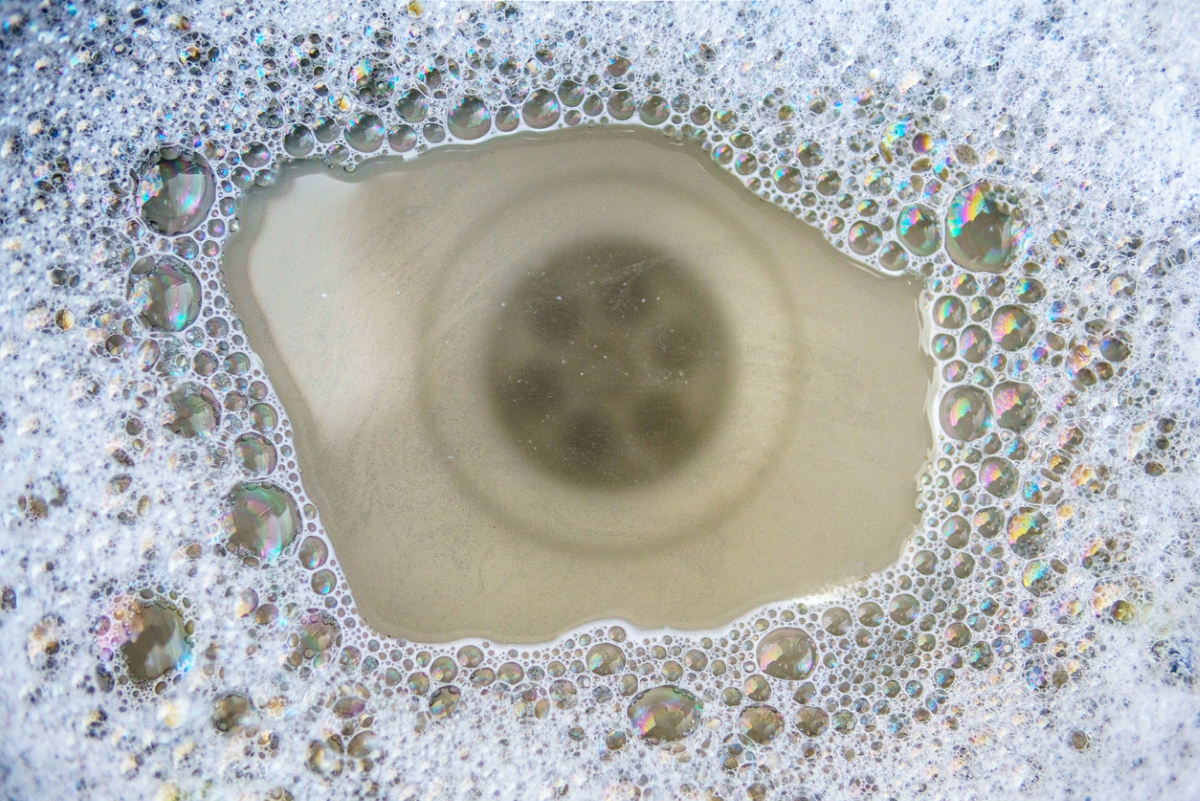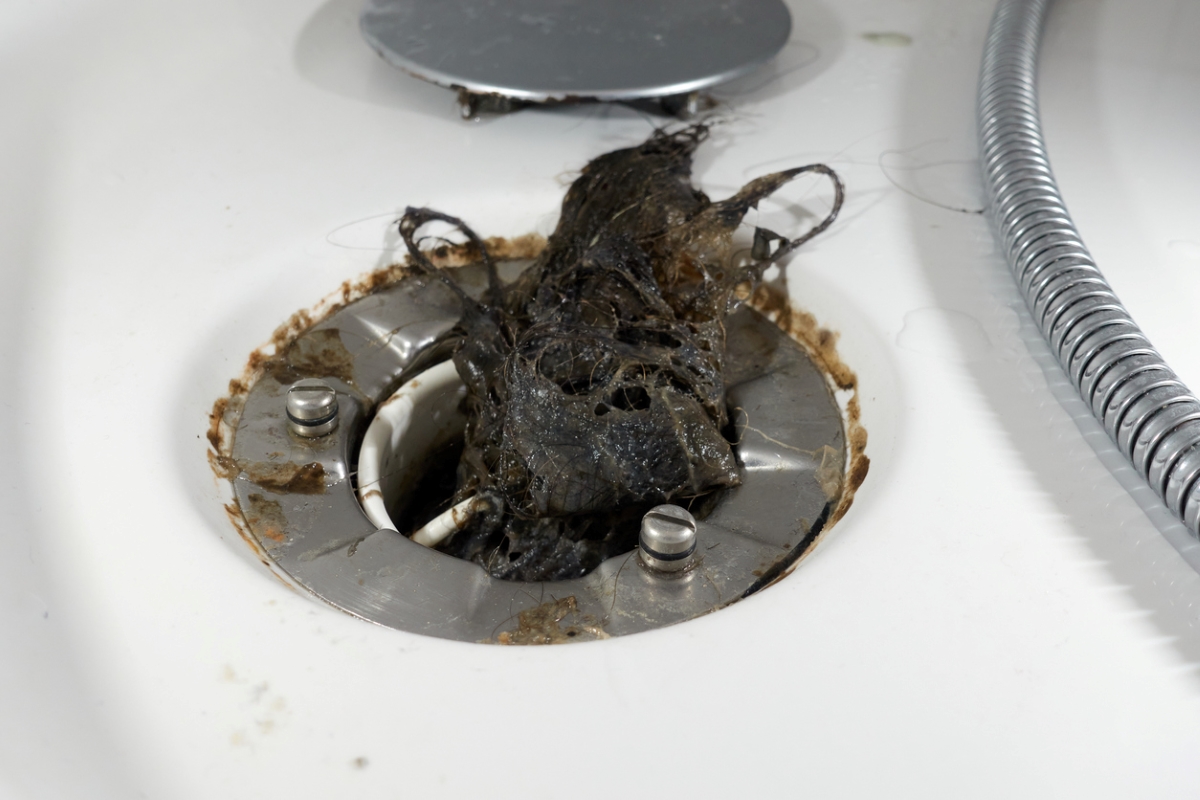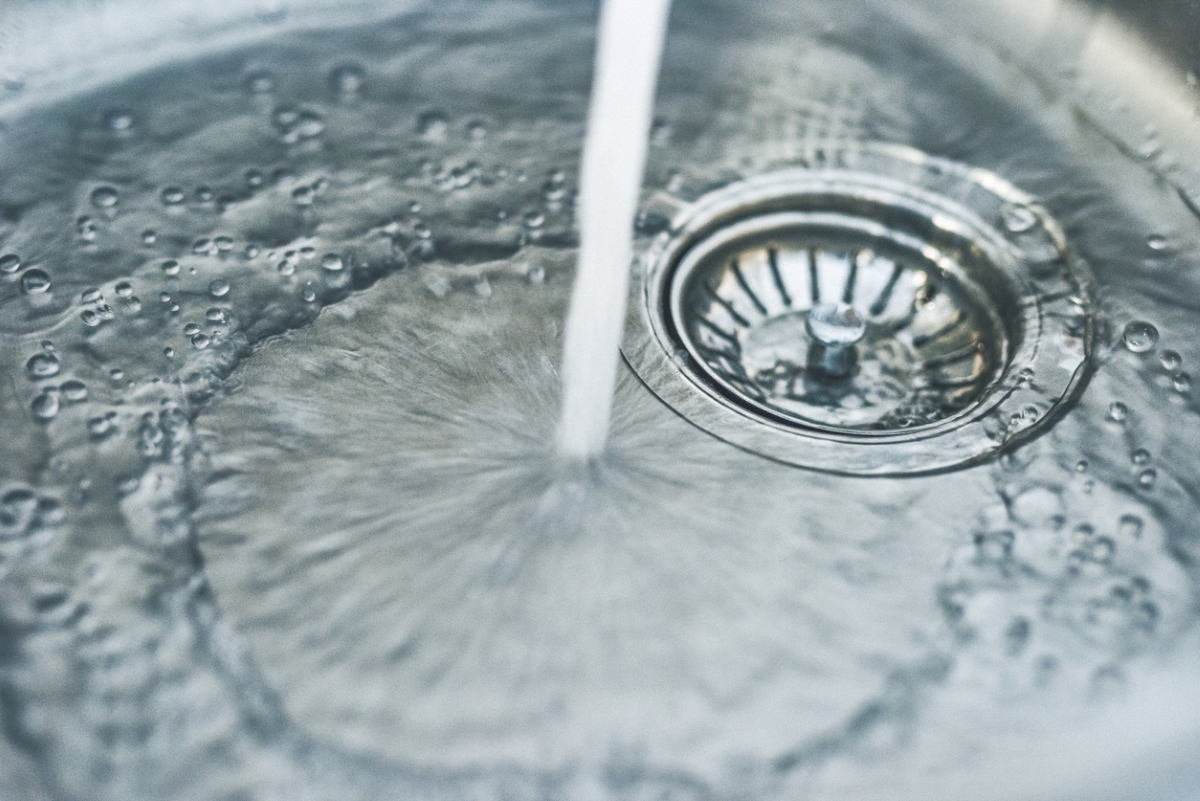

We may earn revenue from the products available on this page and participate in affiliate programs. Learn More ›
Though convenient, liquid drain cleaners aren’t always the right solution to clearing clogs in your sinks, tubs, and showers. These products can damage pipes and septic systems, and don’t always work on the toughest clogs.
Drain augers, also called plumber’s snakes or drain snakes, are more effective clog clearers. Drain snakes have ¼-inch plastic or metal coils that break up blockages in toilet, bathtub, and sink plumbing. The next time your plunger won’t clear a stubborn clog, save some money on a pro by learning how to snake a drain yourself using the following steps.
Tools & Materials
Bobvila.com may earn a commission from purchases made through these links.
Project Overview
Working Time: 30 minutes
Total Time: 30 minutes
Skill Level: Beginner
Estimated Cost: $25
Before You Begin
Before unclogging a sink, bathtub, shower, or toilet, you’ll need a manual or electric drain auger. Some manual models let you attach an electric drill to give it more power to break up the clog. Drain augers cost anywhere from a few dollars for flimsy, disposable versions meant to pull out a hair clog to $25 or more for a longer, sturdier metal coil. If you don’t want to buy an auger, try borrowing one from a neighbor—or even renting an auger from your local home improvement center. For instructions on how to use a drain snake, refer to the steps below.
RELATED: Safely Unclog Any Drain With These 9 Drano Alternatives
Step 1: Put on safety gear and start snaking.

First, put on a pair of rubber gloves and goggles (especially if you poured a chemical drain cleaner down the drain before using an auger), and have a bucket on hand. Insert the snake into the drain and slowly feed the line down the pipe. It may take a few tries to get going. Once it’s in a few inches, gently crank the handle, which causes the auger to further descend down the drain.
RELATED: How to Unclog a Sink Drain
Step 2: Loosen the clog.

As the snake descends, you may need to crank the handle a little harder or wiggle the wire to navigate curves in plumbing, but don’t give up—keep turning. At some point the snake will reach the blockage. When it does, the rotating tip will either break it up as it moves down the pipe or grab hold of the gunk so that you can pull it out.
If the stoppage is a solid mass, the auger head will pierce through the obstruction and resist turning. Crank a few more times so that your snake has a good hold on the clog, give the wire a wiggle to help loosen it, and get ready to pull it out.
RELATED: How to Snake a Toilet
Step 3: Remove the clog.

When you can’t feed the coil any more, turn the handle to wind the snake back out of the drain. Chances are the clog will come out with it, either in pieces or as a solid chunk. Detach the debris from your snake, put it in a bucket, and confirm that your pipes are clear by running the water or flushing the toilet. If necessary, repeat the process. If you followed these steps and your drain is still clogged, call a professional plumber to inspect the drain because you might have a severe blockage or another plumbing issue that needs to be addressed.
RELATED: This $7 Product Can Clear Even the Most Stubborn Drain Clog
How to Prevent Clogged Drains

U.S. homeowners are no strangers to clogged plumbing: According to a survey conducted by Mr. Rooter Plumbing, about 20 percent of homeowners regularly deal with clogged toilets, and 15 percent struggle with backed-up drains. Use the following tips to keep your pipes clear:
- When using your garbage disposal, run cold (not hot) water to flush debris from the drain. When you turn the disposal off, keep the water running for at least 30 seconds to rinse the pipes.
- In bathtub or shower drains, remove the overflow plate once a week and raise the pop-up assembly, then clear away any obstructions.
- In the shower, remove the drain cover once a week and use a bent wire to clear out any built-up soap and hair clogs.
- Your drains shouldn’t be a dumping ground for debris. To keep backups at bay, never put any of these items down your pipes: grease, coffee grounds, gum, pasta, rice, eggshells, baby wipes, napkins, feminine hygiene products, hair, cat litter, dental floss, bandages, or building materials like plaster and similar compounds.
RELATED: I Tried the DeWalt Cordless Drain Snake in a Pinch: Here’s What Happened
Final Thoughts
When you hire a pro, the cost to snake a drain ranges from $145 to $300. You can save quite a bit of money by learning how to snake a bathtub drain and tackling this simple DIY project yourself. For recommendations on quality tools to get the job done, see our researched guide on the best drain snakes.
